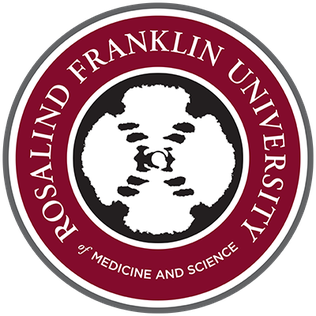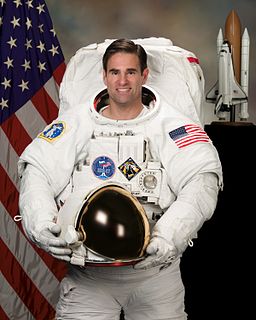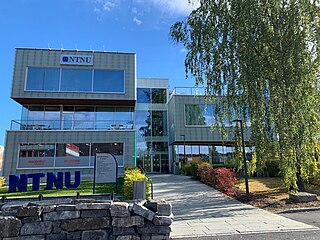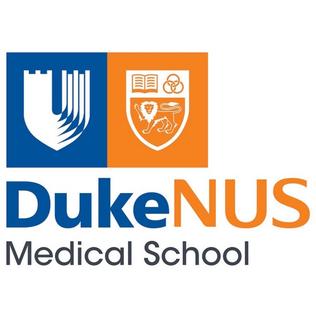
Catherine Grace "Cady" Coleman is an American chemist, a former United States Air Force colonel, and a retired NASA astronaut. She is a veteran of two Space Shuttle missions, and departed the International Space Station on May 23, 2011, as a crew member of Expedition 27 after logging 159 days in space.
Ronald Newbold Bracewell AO was the Lewis M. Terman Professor of Electrical Engineering of the Space, Telecommunications, and Radioscience Laboratory at Stanford University.

Doctor of Medicine is a medical degree, the meaning of which varies between different jurisdictions. In the United States, and some other countries, the M.D. denotes a professional graduate degree. This generally arose because many in 18th-century medical professions trained in Scotland, which used the M.D. degree nomenclature. In England, however, Bachelor of Medicine, Bachelor of Surgery was used and eventually in the 19th century became the standard in Scotland too. Thus, in the United Kingdom, Ireland and other countries, the M.D. is a research doctorate, higher doctorate, honorary doctorate or applied clinical degree restricted to those who already hold a professional degree(Bachelor's/Master's /Doctoral) in medicine; in those countries, the equivalent professional to the North American and some others use of M.D. is still typically titled Bachelor of Medicine, Bachelor of Surgery (M.B.B.S.).
A medical school is a tertiary educational institution, or part of such an institution, that teaches medicine, and awards a professional degree for physicians and surgeons. Such medical degrees include the Bachelor of Medicine, Bachelor of Surgery, Master of Medicine, Doctor of Medicine (M.D), Doctor of Podiatric Medicine (D.P.M), or Doctor of Osteopathic Medicine (D.O). Many medical schools offer additional degrees, such as a Doctor of Philosophy (Ph.D), master's degree (M.Sc,) or other post-secondary education.

Russell Alan Hulse is an American physicist and winner of the Nobel Prize in Physics, shared with his thesis advisor Joseph Hooton Taylor Jr., "for the discovery of a new type of pulsar, a discovery that has opened up new possibilities for the study of gravitation".

Donald Alan Thomas, Ph.D. is an American engineer and a former NASA astronaut.
A Doctor of Pharmacy is a professional doctorate in pharmacy. In some countries, it is a first professional degree and a prerequisite for licensing to practice the profession of pharmacy or to become a clinical pharmacist. In many countries they are allowed to practice independently and can prescribe drugs directly to patients. A PharmD program has significant experiential or clinical education components in introductory and advanced levels for the safe and effective use of drugs. Experiential education prepares graduates to be practice-ready, as they already have spent a significant amount of time training in areas of direct patient care and research. A PharmD graduate is entitled to prefix their name with "Dr."

Rosalind Franklin University of Medicine and Science (RFU) is a private graduate school in North Chicago, Illinois. It has more than 2,000 students in five schools: Chicago Medical School, College of Health Professions, College of Pharmacy, Dr. William M. Scholl College of Podiatric Medicine, and School of Graduate and Postdoctoral Studies. The university is named for famous DNA crystallographer Rosalind Franklin. Photo 51, an X-ray diffraction pattern of the B form of DNA, captured by Franklin in 1952, was pivotal in the history of biology in the 20th Century. The image is depicted in the university's seal and logo.
In Western universities, a Bachelor of Divinity or Baccalaureate in Divinity is an undergraduate or postgraduate academic degree awarded for a course taken in the study of divinity or related disciplines, such as theology or, rarely, religious studies.
The Doctorate of Medicine and of Philosophy (MD–PhD) is a dual doctoral degree for physician–scientists, combining the vocational training of the Doctor of Medicine degree with the research expertise of the Doctor of Philosophy degree; the Ph.D is the most advanced credential in the United States. Other dual degree programs exist, such as the joint MD-JD degree; both the JD professional degree and the MD are not universally recognized internationally, however. The National Institutes of Health currently provides 50 medical schools with Medical Scientist Training Program grants that support the training of students in MD–PhD programs at these institutions through tuition and stipend allowances. These programs are often competitive, with some admitting as few as two students per academic year. The MCAT score and GPA of MD–PhD matriculants are often higher than MD only matriculants.

Gregory Errol Chamitoff is a Canadian-born American engineer and former NASA astronaut. He has been to space twice, spending 6 months aboard the ISS across Expedition 17 and 18 in 2008, and another 15 days as part of STS-134 in 2011. STS-134 was the last of Space Shuttle Endeavour which delivered the Alpha Magnetic Spectrometer and completed the US Orbital Segment.
Stephen John Blundell is a professor of physics at the University of Oxford. He was previously head of Condensed Matter Physics at Oxford, and is also a professorial fellow of Mansfield College, Oxford. His research is concerned with using muon-spin rotation and magnetoresistance techniques to study a range of organic and inorganic materials, particularly those showing interesting magnetic, superconducting, or dynamical properties.
International Max Planck Research School for Molecular Biology, also known as IMPRS for Molecular Biology, is a 1.5 years MSc program or a 4-year PhD program. The first year in both graduate tracks is the same and the students are studying together. The curriculum consists of intensive theoretical lectures covering all major fields of the molecular biosciences. Each lecture is followed by a tutorial for in-depth discussion of the topics covered. The practical education consists of 3 months of 2-day methods courses and three 2-month lab rotation projects. All practical work is done in different research laboratories in Göttingen. After an examination at the end of the first year, based on the final grades it is possible to continue towards a MSc or PhD, or PhD with integrated MSc degrees. There are about 20 students accepted each year selected on a highly competitive basis from applicants from all over the world. The IMPRS for Molecular Biology was one of the founding member members and is part of the Göttingen Graduate School for Neurosciences and Molecular Biosciences (GGNB). Every year students from the graduate program are organizing the renowned international PhD symposium Horizons in Molecular Biology.

Gjøvik University College is a university college in Norway. In January 2016, Gjøvik University College joined with the Norwegian University of Science and Technology. HiG is now referred to as the NTNU campus in Gjøvik.

A Doctor of Philosophy is the most common degree at the highest academic level awarded following a course of study. PhDs are awarded for programs across the whole breadth of academic fields. Because it is an earned research degree, those studying for a PhD are required to produce original research that expands the boundaries of knowledge, normally in the form of a thesis or dissertation, and defend their work against other experts in the field. The completion of a PhD is often a requirement for employment as a university professor, researcher, or scientist in many fields. Individuals who have earned a Doctor of Philosophy degree may, in many jurisdictions, use the title Doctor with their name, although the proper etiquette associated with this usage may also be subject to the professional ethics of their own scholarly field, culture, or society. Those who teach at universities or work in academic, educational, or research fields are usually addressed by this title "professionally and socially in a salutation or conversation." Alternatively, holders may use post-nominal letters such as "Ph.D.", "PhD", or "DPhil". It is, however, considered incorrect to use both the title and post-nominals at the same time.
Master of Medicine (MMed) is a postgraduate Professional clinical degree awarded by medical schools to physicians following a period of instruction, supervised clinical rotations and examination. The degree is usually three years, but maybe four years in some countries and is awarded by both surgical and medical subspecialties and usually includes a dissertation component. The degree may complement an existing fellowship in the chosen specialty or be the sole qualification necessary for registration as a specialist.

The Duke–NUS Medical School (Duke–NUS) is a graduate medical school in Singapore. The school was set up in April 2005 as the Duke–NUS Graduate Medical School, Singapore's second medical school, after the Yong Loo Lin School of Medicine, and before the Lee Kong Chian School of Medicine. It is a collaboration between the Duke University at the United States and the National University of Singapore at Singapore.

Henry Crew was an American physicist and astronomer.
The service-oriented computing environment (SORCER) is a distributed computing platform implemented in Java. It allows writing network-programs that operate on wrapped applications (services) to spread across the network. SORCER is often utilized in scenarios similar to those where grids are used in order to run parallel tasks.
The Princeton University Department of Physics is an academic department dedicated to research and teaching at Princeton University. The associated faculty members, researchers, and students have been recognized for their research contributions, having been awarded 19 Nobel Prizes, four National Medals of Science, and two Wolf Prizes in Physics. Notable professors, researchers, and graduate students affiliated with the department include Albert Einstein, Richard Phillips Feynman, Joseph H. Taylor, Eugene P. Wigner, and John von Neumann. In addition, the department offers degree programs for bachelor's students (A.B.) and doctoral students (Ph.D.).









